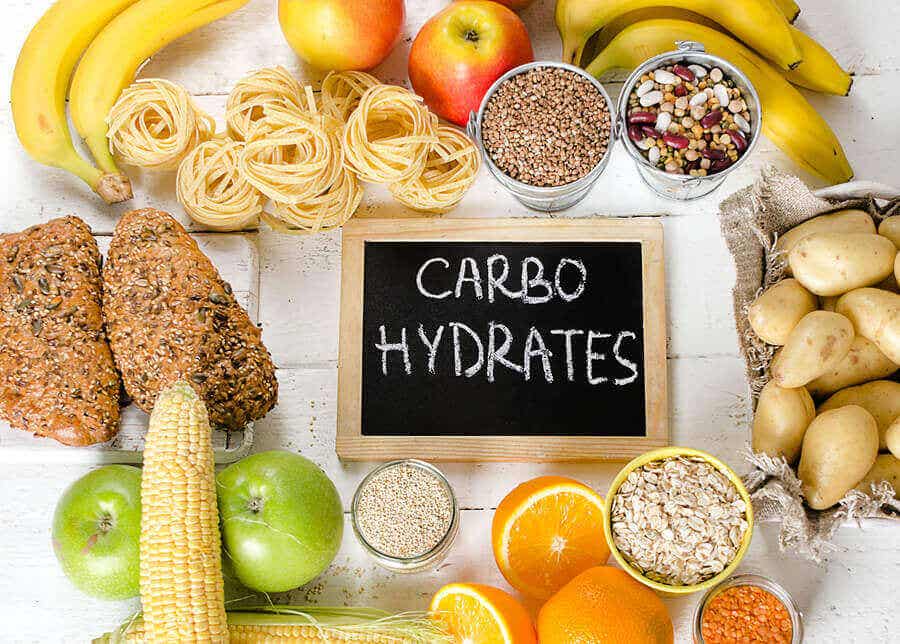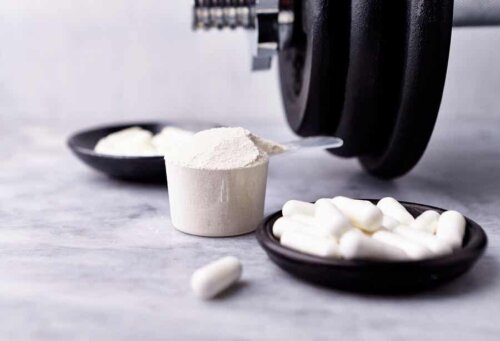Common Sports Nutrition Myths


Written and verified by the nutritionist Saúl Sánchez Arias
Sports nutrition myths are all around us. On many occasions, these can put an athlete’s health at risk or, simply, promise effects that aren’t possible.
In other cases, scientific advances can destroy the myths around old beliefs to adapt them to current trends.
So, what should you know?
Below, we’ll go into detail about some of these myths!
Common sports nutrition myths
Sports nutrition has always been surrounded by myths. For that reason, in recent years, many investigators have focused their efforts on finding more out about them. In fact, today we’re able to tell which beliefs are rooted in lies.
Carbohydrate loads

Loading up on carbs can be useful in many sports. However, until a few years ago, people did this differently. Traditionally, loading up on carbs, or overloading, required a complete depletion of the deposits for a later over-intake of this nutrient.
Current studies indicate that this method is wrong. It’s not necessary to vary your eating pattern a lot to get your body to saturate glycogen deposits. It’s enough to reduce the amount you train with and improve your rest in the days leading up to it.
This discovery helps with the carb load without risking an imbalance in the number of calories you eat nor compromising how your muscles function.
You may also be interested in: What is Whey Protein and Who Should Drink it?
Supplements
There are many substances on the market that claim they have the ability to increase sporting performance. However, few of these are actually capable of doing so. What’s true of all of them is that the industry markets them in a way that causes confusion.
A very clear example is the substances that promise to increase how much fat you burn. Although an adequate dosage of vitamin C can improve the oxidation of supplements as you exercise, according to some studies, few substances actually cause weight loss.
Of the few substances that can help improve your body composition, we can mention caffeine, creatine, and hydroxymethyl-butyrate (HMB). However, the effect isn’t miraculous and you should complement your usage of any of them by regularly exercising and maintaining a healthy diet.
The particular case of testosterone boosters

One of the biggest sports nutrition myths claims that using certain natural substances can increase testosterone levels. Substances like ginger, Tribulus Terrestris, aspartic acid, etc. all supposedly promise to increase the levels of this hormone naturally, improving, as a result, sporting performance and muscular function.
The reality is that no study on humans supports this claim. The majority of the studies that specialists do involve animals, and in many cases, they only increase sperm production.
In humans, all the studies that specialists have done conclude that some substances may improve sex drive in circumstances where the person has low levels of testosterone. However, specialists haven’t found a link with protein synthesis, muscle mass gain, or function.
The moment to drink is when you start to feel thirsty
Dehydration starts before you feel thirsty. Especially in warm or humid climates, losing water and mineral salts can negatively affect your performance and health.
For that reason, it’s a good idea to drink small amounts of water constantly, 20 minutes after you have started training. Scientific literature notes the importance of correct hydration to avoid drops in your sporting performance.
Something to remember about sports nutrition
Sports nutrition myths are everywhere; they promise an improvement in sporting performance. However, the key to success resides in the proper planning of your workouts and a varied and balanced diet.
Reducing your consumption of processed foods and increasing the amount of fruit and vegetables you eat, along with good rest, and proper hydration will help to stop undesired drops in your sporting performance.
Don’t get sucked into the marketing that could cause you to overconsume supplements that don’t cause any effect endorsed by the scientific community.
Also, when it comes to choosing a supplement, it’s important to opt for the brands that can guarantee there are no doping substances in the composition of their products.
All cited sources were thoroughly reviewed by our team to ensure their quality, reliability, currency, and validity. The bibliography of this article was considered reliable and of academic or scientific accuracy.
- Murray B., Rosenbloom C., Fundamentals of glycogen metabolism for coaches and athletes. Nutr Rev, 2018. 76 (4): 243-259.
- Johnston CS., Corte C., Swan PD., Marginal vitamin C status is associated with reduced fat oxidation during submaximal exercise in young adults. Nutr Metab (Lond), 2006.
- Nuccio RP., Barnes KA., Carter JM., Baker LB., Fluid balance in team sport athletes and the effect of hypohydration on cognitive, technical and physical performance. Sports Med, 2017. 47 (10): 1951-1982.
- Stoll S. Common Misconceptions in the Nutritional Management of Athletes. Am J Lifestyle Med. 2018;12(5):387–390. Published 2018 Apr 21. doi:10.1177/1559827618766484
This text is provided for informational purposes only and does not replace consultation with a professional. If in doubt, consult your specialist.








